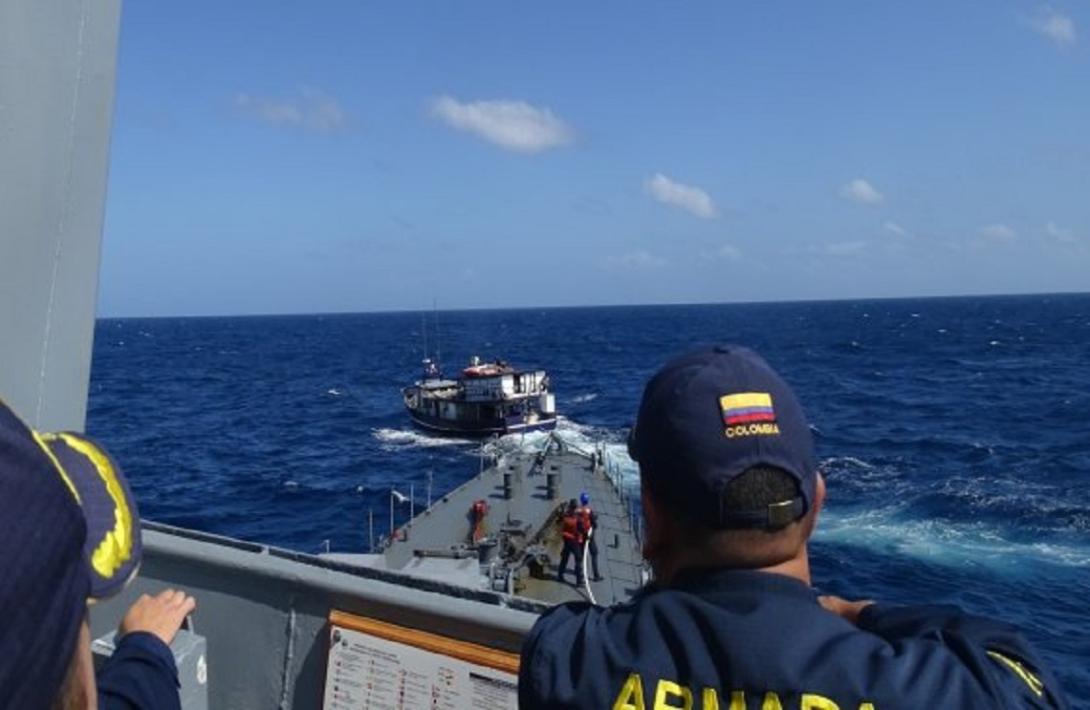In a coordinated work conducted by the Colombian Navy and the General Directorate of the Merchant Navy of Honduras, it was possible to find 2,521 kilograms of lobster, which were illegally extracted in Colombian waters bordering Honduras, near Cayo Serranilla Island, in the department of San Andrés and Providencia.
The ARC Caldas Missile Frigate, carrying out maritime control operations, detected a Honduran fishing ship named Del Caribe I, transiting in Colombian waters. The boat left several fishermen abandoned and started to escape after noticing the work of the crew members of the Naval Institution.
The crew of this fishing ship refused to collaborate with the Colombian Navy to carry out the visit and inspection procedures, so communication was established with the maritime authorities of Honduras, who said that the ship indeed had fishing authorization in that country's waters, but not in Colombian waters.
Being fully identified, and facing the military pressure and deterrence, the Honduran ship with its crew set out to leave Colombian waters. Subsequently, thanks to the denunciations and evidence provided by the Naval Institution where the fishing activity in Colombian waters is seen, the Honduran maritime authorities carried out the corresponding sanctioning processes.
This is how the Del Caribe I ship was inspected in its country and since it did not have the documents required by the authorities for the exercise of fishing activity in Colombian waters, the General Directorate of Fisheries and Aquaculture of Honduras — DIGEPESCA reported and certified it to the General Directorate of the Merchant Navy of that country; the boat had more than 2.5 tons of lobster.
This result is obtained within the framework of international cooperation and in compliance with the Almirante Padilla Bicentenary Plan, combating transnational crimes that attack the environment and the entire territory; maritime sovereignty and control operations are carried out by afloat units of the Colombian Navy in the insular region, protecting the historical fishing rights of the Raizal people.
Source: Press – Navy of Colombia





